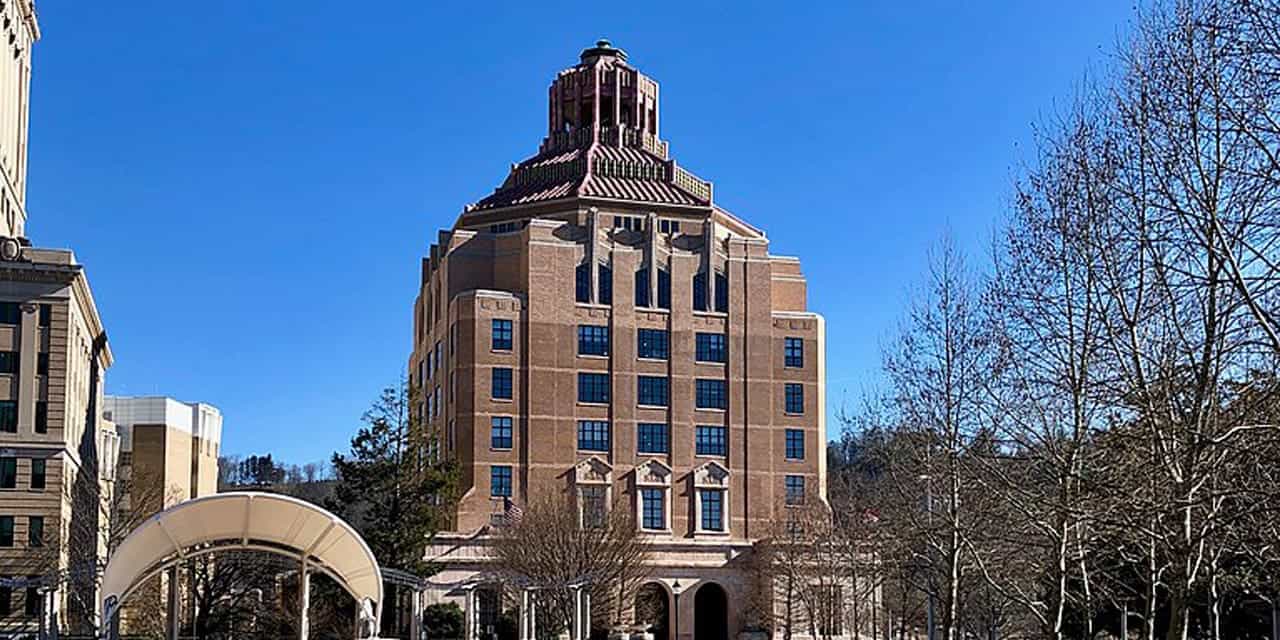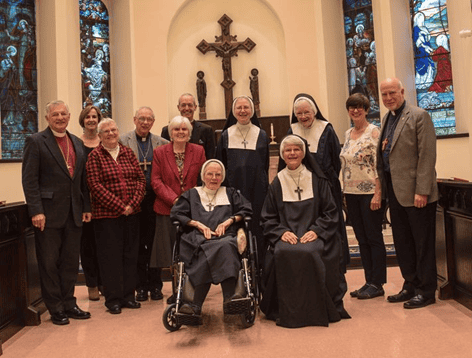North Carolina City Approves Reparations for Slavery

Asheville, North Carolina, a city of 92,000 located in the Blue Ridge Mountains in the western half of the state, is home to the University of North Carolina/Asheville. Known for its microbreweries, outdoor activities and its location along the Blue Ridge Parkway, Asheville is a magnet for tourists.
The city was founded in 1784, and by the time the Civil War rolled around some of its then-2500 residents served in the Confederate Army, while a smaller number joined the Union ranks. There was even a brief “Battle of Asheville” fought there in April 1865, before Union troops withdrew.
The city’s ties to the Confederacy and the system of slavery it supported has bubbled up in the wake of the death of George Floyd and the Black Lives Matter protests that followed.
On July 14 the city council of Asheville voted unanimously to approve a resolution apologizing for the city’s historic role regarding slavery and systemic racism, and authorized reparations for its African American residents.
No actual monetary payments will be made to anyone. Rather, the resolution authorizes the creation of a commission “empowered to make short, medium and long term recommendations that will make significant progress toward repairing the damage caused by systemic public and private racism.”
The programs and budgetary ideas the commission comes up with will be geared toward “increasing minority home ownership and access to other affordable housing, increasing minority business ownership and career opportunities, strategies to grow equity and generational wealth, closing the gaps in health care, education, employment and pay, neighborhood safety and fairness within criminal justice.”
Councilman Keith Young, an African American, spoke passionately in support of the resolution as he introduced it.
“The blood capital that we have banked, to spend today, to fight for significant change, came predominately not from our [white] allies, but from black men, women and children who died to get to this very moment. Generations, so to speak. Hundreds of years of black blood spilled that basically fills the cup that we drink from today,” Young said.
“Anything we do has to outlive the emotions of this present moment. Because the future success of my own children, and our current and future society, depends on the sustained success of the systemic changes that we seek.”
Councilwoman Sheneika Smith, also an African American, addressed comments the council had received asking why the city should be responsible for the effects of slavery.
“Reparations is more than restitution for what happened during the trans-Atlantic slave trade. It is a dark evil – sin – of chattel slavery that is the root of all injustice and inequity at work in American life today.”
The public offered comments before and after the online vote, which lasted several hours. Most spoke in favor of the resolution.
Reparations has long been a controversial topic, which is why Asheville’s resolution has attracted national media interest. Following the death of George Floyd and the street protests that followed, an increasing number of politicians are even making reparations for slavery a 2020 campaign issue.
Photo from Warren LeMay
Visit our Election 2020 page
ABOUT THE AUTHOR

Bruce Hausknecht, J.D., is an attorney who serves as Focus on the Family’s judicial analyst. He is responsible for research and analysis of legal and judicial issues related to Christians and the institution of the family, including First Amendment freedom of religion and free speech issues, judicial activism, marriage, homosexuality and pro-life matters. He also tracks legislation and laws affecting these issues. Prior to joining Focus in 2004, Hausknecht practiced law for 17 years in construction litigation and as an associate general counsel for a large ministry in Virginia. He was also an associate pastor at a church in Colorado Springs for seven years, primarily in worship music ministry. Hausknecht has provided legal analysis and commentary for top media outlets including CNN, ABC News, NBC News, CBS Radio, The New York Times, the Chicago Tribune, The Washington Post, The Washington Times, the Associated Press, the Los Angeles Times, The Wall Street Journal, the Boston Globe and BBC radio. He’s also a regular contributor to The Daily Citizen. He earned a bachelor’s degree in history from the University of Illinois and his J.D. from Northwestern University School of Law. Hausknecht has been married since 1981 and has three adult children, as well as three adorable grandkids. In his free time, Hausknecht loves getting creative with his camera and capturing stunning photographs of his adopted state of Colorado.
Related Posts

Is it ‘Voter Suppression’ to Require Proof of Citizenship to Vote?
February 10, 2026

Education Department Celebrates National School Choice Week
January 30, 2026

New York Ends Fight to Force Nuns to Pay for Abortions
January 27, 2026

